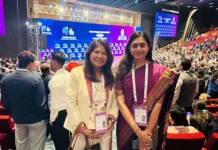Flights Of Fantasy
[ M Panging Pao ]
Democracy is defined by many as ‘government for the people, government of the people, government by the people’. Democracy is benchmarked by voting rights for all citizens, irrespective of caste, race, tribe and economic status. India is proud to be the largest democracy of the world.
Compared to other states, almost all constituencies in Arunachal have substantially lesser numbers of voters per constituency. With an average of about 10,000 voters per constituency and taking the average voting turnout, about 4,000-5,000 votes are enough to win elections. In a few constituencies, 2,000-3,000 voters are enough to get elected. In mainland India or Assam, the average number of voters in any constituency is in few lakhs. Therefore the average numbers of voters required to win elections are much larger.
Due to lesser numbers of voters required to win elections in Arunachal and smaller states of the Northeast, candidates can afford to buy off these small numbers of voters and win elections. Elections in Arunachal and these smaller states are mostly based on buying off the required voters. As a result, candidates end up spending humongous amounts of money, amounting to multiple crores of rupees, during elections in Arunachal. Most constituencies of other states have lakhs of voters and it is difficult to buy off these large numbers of voters. Hence, voting in other states of mainland India are mostly based on criteria like ideologies, development, governance, etc. While caste- or race-based politics are still being practiced, it is almost impossible to buy off all the required voters.
In Arunachal, one must be a multi-crorepati to stand in elections. If a candidate spends multiple crores of rupees to win an election, it is but natural for the winning candidate to start recovering their money post elections. In addition, they must collect money for the next elections.
Hence, Arunachal’s electionomics comprises a vicious and unending circle of spending large amounts of money to buy voters; recovering the spent amount through commissions/cuts from government projects/schemes and prepare for the next elections; and giving back money to the voters in the next elections. Analysis would reveal that the money meant for developmental projects and public schemes are the victims in this circle of electionomics.
In the upcoming simultaneous panchayat and municipal elections to be held in a few days, it is estimated that the expenditures by all the candidates would amount to more than Rs 200 crores, with an additional official expenditure of about Rs 50-100 crores for conducting elections. For the assembly elections, the total expenditure by all the candidates is about Rs 2,000-2,500 crores. Ultimately, all these large amounts spent in elections come from somewhere.
Due to this circle of electionomics, development suffers, which leads to sufferings by common villagers. If Arunachal requires good roads, stable electricity, well-equipped hospitals, good schools/colleges, good sports infrastructure, more industries, airports, railways, etc, we must end this circle of electionomics by stopping the cash-for-votes culture. CBOs, intellectuals, NGOs and youths should contribute towards practicing better form of democracy. We owe it to our coming generations. (The contributor is retired Group Captain, Indian Air Force)

